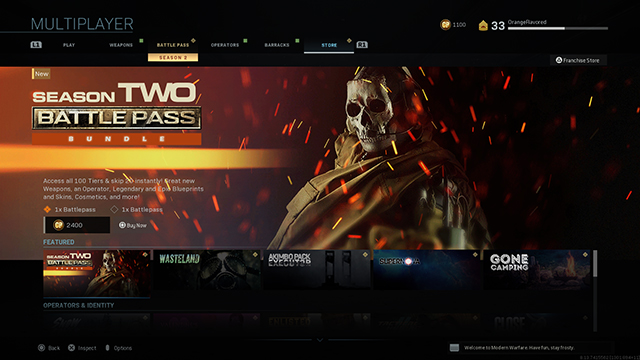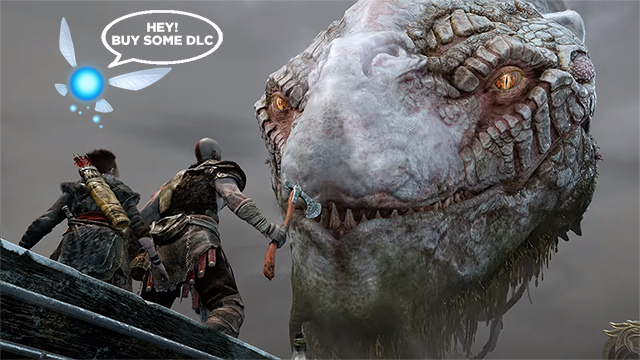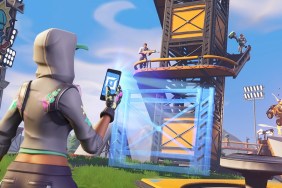Sony blessed us with Spider-Man, God of War, Horizon Zero Dawn, and more single-player games over the past few decade. It’s a trend that other publishers aren’t as quick to do, especially as none of those games have any microtransactions. Although that doesn’t mean Sony isn’t looking that way anyway as the company filed a new patent that would supposedly encourages players to spend money if they’ve hit a some sort of wall. It’s unlikely that it’ll actually be brought to fruition, but it is scary nonetheless because of what it represents.
ALSO: Anthem 2.0 is make or break for BioWare
This patent filed on the World Intellectual Property Organization innocuously titled “In-Game Resource Surfacing Platform” was published in January 2020 and “contextually related resources to a player of a video game by way of a surfacing platform.” In essence, it’s like Navi from The Legend of Zelda, but instead of telling you to listen, it’s offering up more specific hints or data to help get you past a certain point. The drawings even include Jörmungandr from God of War and offer hints to the player along with stats from others that have beaten the boss, despite it not actually being a boss. While it does seem intrusive, it could also be helpful and sounds somewhat like an adaptive version of the guide system Google planned to implement (but still hasn’t) into Stadia.

But the whole “resource X Buy Now!” part in the image of the patent is more troubling as that can easily be anchored to microtransactions or any other sort of real-money items on the marketplace. That language is specifically mentioned in the patent as it describes users having to decide “on which item, add-on, or upgrade to obtain in order to achieve a goal.” Without “add-on,” Sony could wiggle around and just say that it could just point players toward upgrades they could earn within the title itself. But it does have that word and that opens up a whole can of worms. The drawings even include a storefront that give data for how many players used a certain piece of DLC, as you can see in the above picture, showing that it wasn’t just the “add-on” part wasn’t just a simple slip up.
Activision filed a similarly grimy patent back in 2015 that was aimed at pushing microtransactions on players albeit in a multiplayer environment rather than a single-player one. That was never implemented — something Bungie even outright denied putting in Destiny 2 — but that isn’t quite the issue here. Patents get filed all of the time and don’t see the light of day. Remember the 2012 patent Sony had for a controller that would break apart? What about the one with a touchscreen? You might not because they never happened.
The effort is the actual problem

Mentality is the real problem here as it showcases how publishers are always trying to poke and prod their audiences for more cash. We’re constantly bombarded with microtransactions in almost every game as everything has a monetary cost associated to it, requires a ton of grinding, or both. The newest Modern Warfare season is plastered with different ways to get to the store so you can buy the newest battle pass or newest bundle. It might not be as pervasive or gross as previous Call of Duty games, but it’s definitely not hiding with all the tabs and shortcuts that take you to a page where you can spend money.
Wanting to invade other spaces with what are ostensibly pop-up ads is pushing that notion even further. Imagine those same storefronts in Modern Warfare popping up near the end of the match telling you that the skin of the other players was just a few bucks, which is close to what that Activision patent was aiming for. Other games with more gameplay-specific additions (like past Call of Duty games) would be even more prone to this sort of bad advertisements as you could get players to buy stuff outside the realm of cosmetics in an effort to correlate performance with premium perks or weapons.
Bad DLC came first. Then online passes, on-disc DLC, season passes, microtransactions, and loot boxes all followed suit and pushed the envelope in waves. And this system demonstrates yet another part of that ever-growing effort to find the bottom and go one step too far. Those systems aren’t always all bad — Mortal Kombat 11 should definitely get another Kombat Pack as Crash Team Racing: Nitro-Fueled should get another season of content — but shoving them so aggressively into the face of players is a step too far.
Thankfully, Sony most likely won’t ever implement this bad system. Not only does it shatter immersion, but it blows the door wide open for bad business practices that you can’t easily avoid in a way that would appropriately catch a lot of heat. But it’s still a reminder that video game companies — even one with a glistening reputation like Sony with a ton of microtransaction-free, Game of the Year contenders — are always looking for ways to insert more annoying business practices. There’s a line and these patents reveal that someone is always looking for its edge and hoping to push it.












